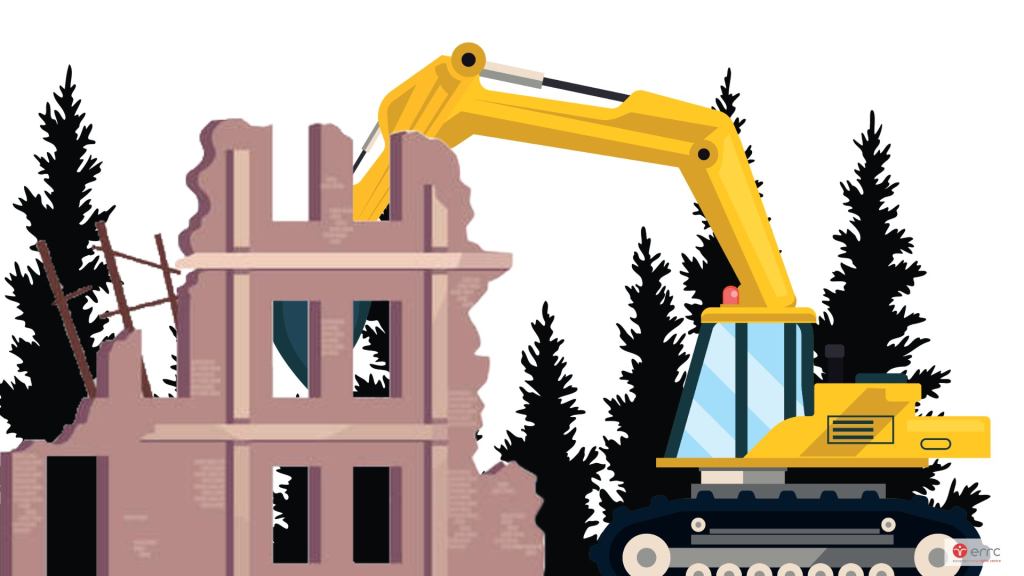Bulgaria: Human Rights Commissioner calls for immediate action for Roma made homeless by the ‘Sugar Factory’ demolition
08 May 2025

More than a week after the illegal mass demolition of Romani dwellings in the ‘Sugar Factory’, fakti.bg reported on the desolate conditions at the site, “tons of garbage, wandering dogs, a single chemical toilet and people sleeping on mattresses or directly on the ground.”
Council of Europe Human Rights Commissioner Michael O’Flaherty called on Bulgarian authorities to take immediate action to address the humanitarian crisis facing more than 200 Roma left homeless after the illegal demolition of their neighbourhood by Sofia Municipality on 15 April 2025.
In a letter to the Bulgarian Prime Minister, the Commissioner called for the provision of emergency shelter, basic sanitary and hygienic conditions and access to essential health care, social services and legal aid for those concerned, and to prevent any violence against Roma.
The action taken by the mayor of Ilinden district, Emil Branchevski, marked a new first for antigypsyism in Bulgaria. It was the first violation of interim measures imposed by the European Court of Human Rights (ECtHR); the demolition of family homes was described by Professor Elena Marusiakova as “a careless and criminal act”. The reporter also noted that “no institution - Sofia Municipality, Ministry of Justice, Prime Minister, President, Church leaders, nor any political force - from the opposition or the ruling coalition, reacted to the brutal action.”
Mayor Branchevski remained defiant dubbing the ECtHR ruling ‘misleading’, and downplayed the significance of flouting the interim measure, telling the media on 15 April that “a decision written in French was received, but the official language of Bulgaria is Bulgarian.” The European Court has given Bulgaria until May 9 to provide additional information on what accommodation options have been offered to the applicants.
Commissioner O’Flaherty, in his letter to the Bulgarian Prime Minister, also noted that the dire circumstances of those evicted have been “further exacerbated by rising tensions and the broader climate of hostility towards Roma, including opposition by other district mayors and residents of Sofia to the provision of alternative accommodation in other areas of the city.”
As to the broader hostility, one commentator spoke of a ‘tidal wave of indignation spread across social media’ against anyone who speaks up for the evicted, while residents in neighbouring districts have hit the streets in protest alongside their mayors following suggestions that the Roma might be moved to temporary accommodation centres in their ‘backyards’.
This issue goes back to 2016, when the Sofia Municipality issued an order to remove illegally constructed buildings on municipal land. There was plenty of time since then to find a humane and acceptable option and provide suitable accommodation for the residents of the ‘Sugar Factory’. Not only was nothing done to improve conditions, action taken by the mayor in 2020 made Romani lives even more precarious: she deleted the administrative address of the mahala, and the Ministry of Regional Development and Public Works deleted more than 700 Roma address registrations. As a result, many Roma were then without personal documents.
Deutsche Welle asked the authorities what motivated the sudden haste to demolish despite the interim measures, whether this was the beginning of a series of punitive measures across the country, and what commercial interest were at play. The official response was the standard line: if the construction is illegal, it is removed; if it is not done voluntarily then it will be done forcibly. According to Rositsa Kratunkova from the NGO ATD, property speculators have expressed interest in the property and there is evidence that the construction of commercial facilities is planned, “and the Roma houses prevent access to the street.”
These forced evictions of Roma communities, described by Emmy Baruch as another move to erase the Roma in Bulgaria are part of what she calls the shadowy side of Bulgarian history: “The image of people gathering their scraps of life in carts and wagons is reminiscent of the refugee caravans of the war years. A picture that politicians turn a blind eye to in disgust.”




